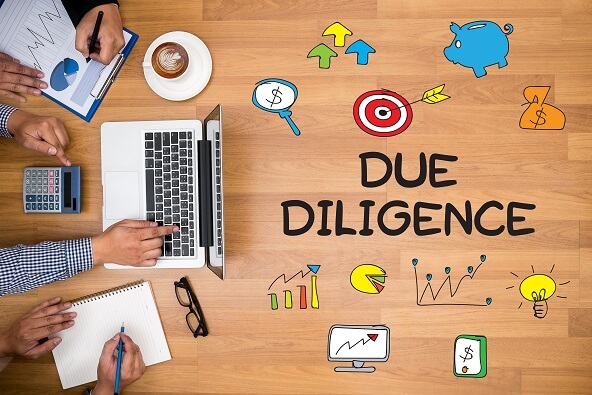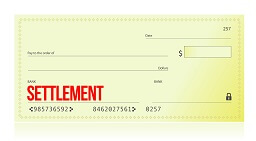The 5 Phases Of Buying A Business
If you’re thinking of buying a business, you need to understand that it is a process. Basically, there are five stages or phases which include:
1. Due Diligence
When you're investigating buying a business and potentially spending several hundred thousand dollars, it’s vitally important that you to do a detailed review of the business' operations, financials and reputation. This is the ‘due diligence’ process.
There’s a lot at stake so you can’t just rely on gut feel and trust your instincts. You probably wouldn’t buy a second-hand car for $20,000 without a detailed inspection by a qualified mechanic so if you’re planning on spending fifty, a hundred or two hundred thousand dollars to buy a business then you need to complete a comprehensive review of the business.
 Buying
a business is exciting and can be a whirlwind but it’s also a process that requires planning and patience. To minimise the risk, you need
access to financial data of the business including historical sales figures. How profitable is the business and what assets are included in
the sale? What are the terms of the lease on the building and what stock is included in the sale? There’s a long list of questions around
the financial aspects of the business and it all starts with a financial health check. If the business doesn’t satisfy the financial test,
then it’s probably not worth investigating the other aspects. As a guide here are some questions we would ask regarding the financials.
Buying
a business is exciting and can be a whirlwind but it’s also a process that requires planning and patience. To minimise the risk, you need
access to financial data of the business including historical sales figures. How profitable is the business and what assets are included in
the sale? What are the terms of the lease on the building and what stock is included in the sale? There’s a long list of questions around
the financial aspects of the business and it all starts with a financial health check. If the business doesn’t satisfy the financial test,
then it’s probably not worth investigating the other aspects. As a guide here are some questions we would ask regarding the financials.
- Have you received and analysed the financial records for the past 3 years including profit and loss statements and tax returns? There is no substitute for certified copies of financial statements and never rely on statements simply generated by the vendor’s accounting software.
- Is there a list of plant and equipment plus fixtures and fittings that the owner intends to sell and where has the valuation come from for these items? Are any of these items under finance agreements (lease or chattel mortgage)?
- Details of any stock being sold with the business and the valuation method. How will it be counted and valued at settlement?
- Do sales and purchase records reconcile to bank statements? Have the records been well kept? Are the total sales broken down by product or service line?
- Does the business have potential for growth and if so, what is your plan to turn that potential into profit? Can you increase sales with the current resources?
- Based on past financial results, have you done a future cash flow projection and profit forecast? What is the break-even point and are profits adequate to warrant the risk of buying?
- What are the sales patterns year-by-year and month-by-month? Is there a seasonal pattern? What is the sales mix (the ratio of each product sold to total sales)? Do a small percentage of customers or clients represent a large percentage of sales?
- Are there any one-off sales that won’t be recurring? What is the impact on profit?
- Are you buying the accounts receivable/debtors? If so, do you have an aged listing of them?
- Has the existing owner received any pre-payments (e.g. deposits) that should be handed over to you at settlement?
Of course, this is just the tip of the iceberg and every business is different. You’ll also need a thorough understanding of the industry, trends and latest technology being used. You should know why the vendor is selling the business. Basically, the due diligence process is all about making sure you know what you are buying and making sure the price is fair and reasonable. You don’t want any surprises after you complete the purchase.
2. The Offer and Acceptance
Once you have done your due diligence the next stage is to make an offer to buy the business. The offer should be in writing and set out the terms and conditions to avoid any misunderstandings down the track. Of course, once the offer is accepted you should get the acceptance in writing.
The offer should be clear about:
- The purchase price and payment terms - deposit, retention and settlement amounts
- What assets are included in the sale - goodwill, stock, plant and equipment, client lists, website, phone numbers etc.
- Treatment of existing employees - who is to be retained and on what terms?
- Whether the sale is subject to any special conditions - e.g. satisfactory due diligence or finance approval
- Whether the vendor will provide any handover - training and ongoing involvement
- Restraint or non-compete clause to be imposed on the vendor
At this stage there is no legal requirement to pay a deposit, however, most vendors will request one. If you pay a deposit, we recommend you pay it to a third party like a solicitor or business broker rather than directly to the vendor.
3. Contract Review
.jpg) Once
agreement has been reached regarding the general terms of the sale, you move to the next phase and get the solicitor to draft a contract of
sale.
Once
agreement has been reached regarding the general terms of the sale, you move to the next phase and get the solicitor to draft a contract of
sale.
Both parties will review the contract and you can expect changes as the contract goes back and forth with revisions. Having a solicitor who specialises in business sales can save time and money and all correspondence between the buyer and vendor should be channelled through them. Make sure you review the draft contract with your solicitor and understand the terms. You’ll normally find the contract contains a number of clauses that seem favourable to one party or the other and remember, the buyer is risking their money, so you need to be negotiable.
4. Negotiations and Exchange
After you and your solicitor have reviewed the contract you will need to provide the other party with your feedback. Typically, the changes to the contract will be handled by the respective solicitors. The contract review should identify any issues or points for negotiation. When the parties finally reach agreement, it’s time to sign (execute) the contract. The deposit is normally paid at this point and the vendor should start to plan the transfer of the business’ assets.
5. Settlement
Leading up to settlement, you should finalise your due diligence and satisfy yourself that the vendor’s information and financials are accurate. You should also ensure that the following items are ready to be transferred to the buyer at settlement:
- Business Assets including the Business Name and Website Domain Name(s)
-
Phone and Fax Numbers

- Client Lists
- Employees
- Lease on the Business Premises
You should also calculate price adjustments for the following:
- Any rent or rates prepaid
- Employees leave entitlements
- Lay Buys or Deposits
- Stock on hand (at cost or agreed value)
With the price now finalised it’s time to settle and make payment. Assuming you’ve followed the steps above you can complete the handover of
keys and provide the signed forms to transfer the business assets including the trading name and domain name etc. Finally, if you’re looking
to buy or sell a business, please don’t hesitate to contact us.
This article forms part of our Business Accelerator Magazine. Download the latest edition HERE or browse other articles from this edition below:













